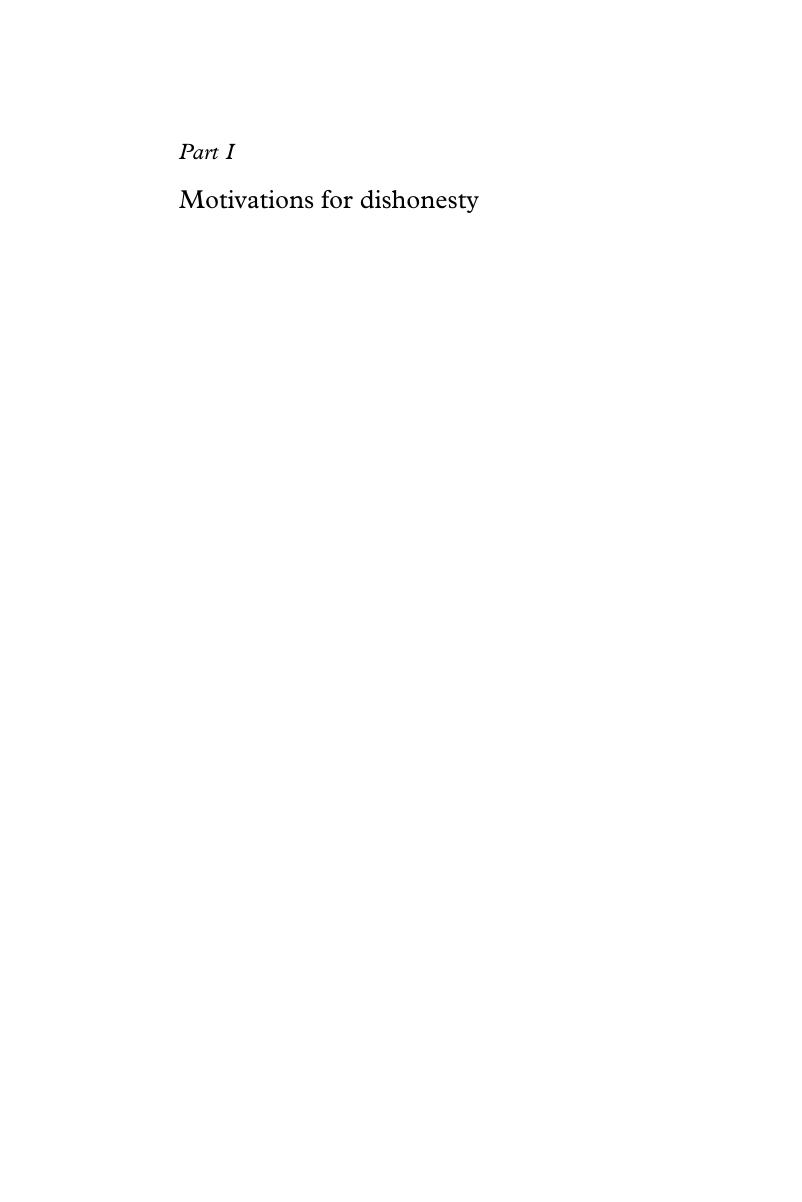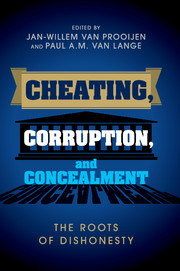Book contents
- Cheating, Corruption, and Concealment
- Cheating, Corruption, and Concealment
- Copyright page
- Contents
- Figures
- Tables
- Contributors
- Preface
- 1 Cheating, corruption, and concealment
- Part I Motivations for dishonesty
- Part II Justifying dishonesty
- Part III Influences on dishonesty
- Part IV Reducing dishonesty
- Book part
- Index
- References
Part I - Motivations for dishonesty
Published online by Cambridge University Press: 05 June 2016
- Cheating, Corruption, and Concealment
- Cheating, Corruption, and Concealment
- Copyright page
- Contents
- Figures
- Tables
- Contributors
- Preface
- 1 Cheating, corruption, and concealment
- Part I Motivations for dishonesty
- Part II Justifying dishonesty
- Part III Influences on dishonesty
- Part IV Reducing dishonesty
- Book part
- Index
- References
Summary

- Type
- Chapter
- Information
- Cheating, Corruption, and ConcealmentThe Roots of Dishonesty, pp. 13 - 72Publisher: Cambridge University PressPrint publication year: 2016

